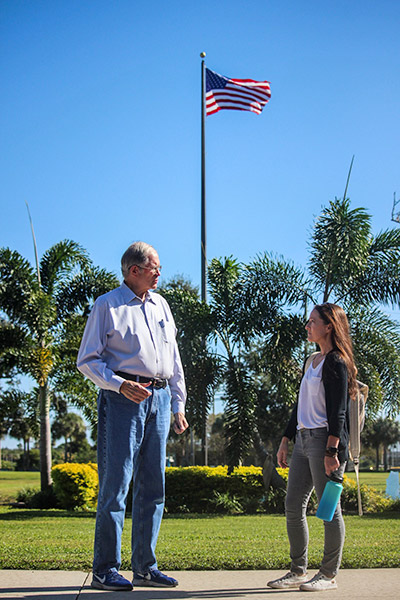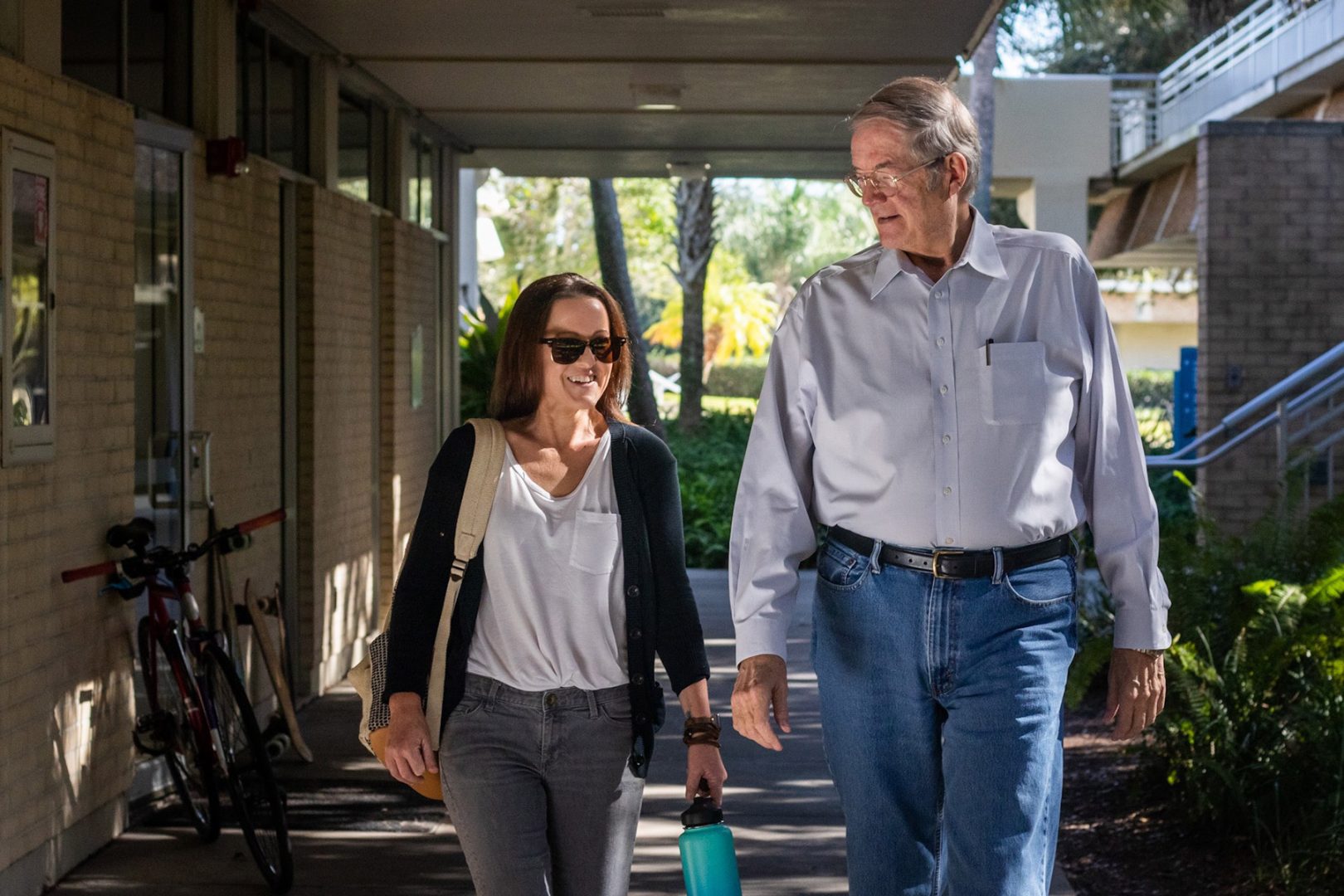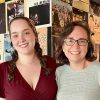If there’s a common thread that runs through the students and faculty at Eckerd College, and veterans of the U.S. military, it’s service. Whether it’s rescuing seabirds, finding new ways to clean up the environment or disposing of bombs, the aim is the same: helping others.
Veterans Day, which is celebrated annually on Nov. 11, is a federal holiday that honors those men and women who served in the United States Armed Forces. Eckerd College is home to several faculty members, staff and students who are veterans.
This includes Kirsten Hutchings. When she walks into a classroom, the reaction, she says, is hit or miss. “Some of the students will look at you and it’s like, “Why is there an old person here?” says Kirsten, a senior environmental studies and political science student from Orlando. “But I’m comfortable with that. Once they actually get to know you, and find out you were in the military, most of them understand. It’s been an education process for everybody.”
Kirsten, whose father and grandfather served in the military, joined the U.S. Air Force in April 2001 and later transitioned to the Army. She worked in military intelligence and was stationed at bases in Japan, Europe and the U.S. She also did a 15-month tour in Afghanistan before leaving the service in 2010, separating as a sergeant.

After working for the U.S. government for nearly a decade, Kirsten decided to get her degree. “I worked with a guy from Florida who said he went to Eckerd, and I said, ‘You mean the pharmacy?’ Then he told me about the small class sizes, the great faculty, the beach … it was right up my alley.”
So in 2019, in her mid-30s, she became one of Eckerd College’s oldest traditional students. And although Eckerd doesn’t have more than a handful of students who are veterans, she helped start the Eckerd College Student Veterans Club. The group has a presence on campus and a Facebook Group. “We [veterans] all live off campus,” she says. “The club is a way to let people know we’re here.”
One of the people who helped Kirsten start the Veterans Club, and is currently its faculty sponsor, is Frank Hamilton, Ph.D., professor of management. After graduating from high school in 1965, Hamilton earned a scholarship to any state college in New York but chose Kent State University in Ohio. At the time, the U.S. had nearly 200,000 troops in Vietnam. Three years later, there were more than half a million. “I went into ROTC to avoid the draft,” Hamilton says. “And then I went on active duty when I graduated in 1970.
“The Army was very good to me,” he adds. “You could pick your branch, and I chose bomb disposal and got it. They sent me to Germany. Little did I know that they didn’t send second lieutenants in bomb disposal to Vietnam because they didn’t have the experience and were killed.”
While in Germany, Hamilton and his detachment had to deal with everything from munitions malfunctions to homemade bombs. “It was kind of fun because I was well trained and we had smart NCOs (noncommissioned officers),” he says. “But we spent a lot of hours on alert.”
After returning to the U.S., Hamilton was asked to teach ROTC at The Ohio State University. And in 1981, he came to what he calls “the great divide.” He was a reservist on active duty, but if he wanted to be promoted to major, he had to switch to the regular Army. He made major, worked as a munitions officer and spent three years in the Pentagon working for the secretary of the Army. He retired from the service in 1992 at age 45, worked in the business community for five years and then started work on his Ph.D.
“I was fortunate in my choices,” he says. “Some of it was luck, but most of it is attitude. You can complain, or you can do something with it.”
What saddens him is that he feels not many younger people understand what Veterans Day is. “It’s the 11th hour of the 11th day of the 11th month, when the Armistice ended World War I,” he says. “And it’s for honoring every veteran, as opposed to Memorial Day, which honors those who died in military service.”
One of the best examples of the notion of service is Carlos Tigreros ’10. As he watched the Afghan refugees board planes in Qatar for their new homes in the U.S. last August, he had a pretty good idea what they had been through. He was born in Chicago but spent his childhood in Colombia. “In the late 1980s and early ’90s, Colombia was going through a very difficult and violent time,” he says. “I grew up with that instability and intense violence in my backyard. When I got to the U.S., I felt like I had won the lottery. I know the difference between living in a country ravaged by war and knowing what it’s like to live in a country like America. I always felt a debt to this country that gave me so much. And I was trying to find ways to give back.” He did.
After graduating from Eckerd with a Bachelor of Arts in business administration, Tigreros joined the U.S. Navy, served for five years and saw the world. “It was a great vehicle to try to understand other cultures,” he says. “No other branch has the global reach the Navy has.”
When his commitment to the Navy ended, he earned a master’s degree at Dartmouth College and went to work for the Department of Homeland Security as a policy advisor. It was during his deployment to Doha, the capital of Qatar, that he aided the Afghan refugees last summer. “Doha was the tip of the spear when it came to shipping out a huge number of Afghans. But seeing the amount of people that literally had to leave their whole lives behind in such a terrifying way … it was very tough to see.
“I felt like I saw my own story in many of those Afghans. I knew what it’s like to live in a country torn apart by war. But many of these people were going to become American citizens and members of our society, and I knew in my heart many of them were going to do great things for their country. It was a great motivator for me.
“But my first step was my time at Eckerd College. I was able to prove to myself that I could do things beyond what I thought was my capacity. I was the first in my family to go to college. Why not be the first to go into the Navy, and that led to Homeland Security. Eckerd was the affirmation. I wouldn’t have been able to succeed in the Navy if I didn’t have the maturity that I got at Eckerd College.”













